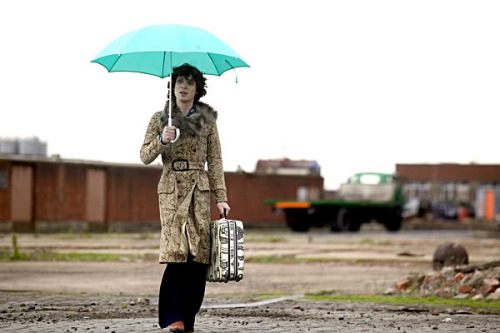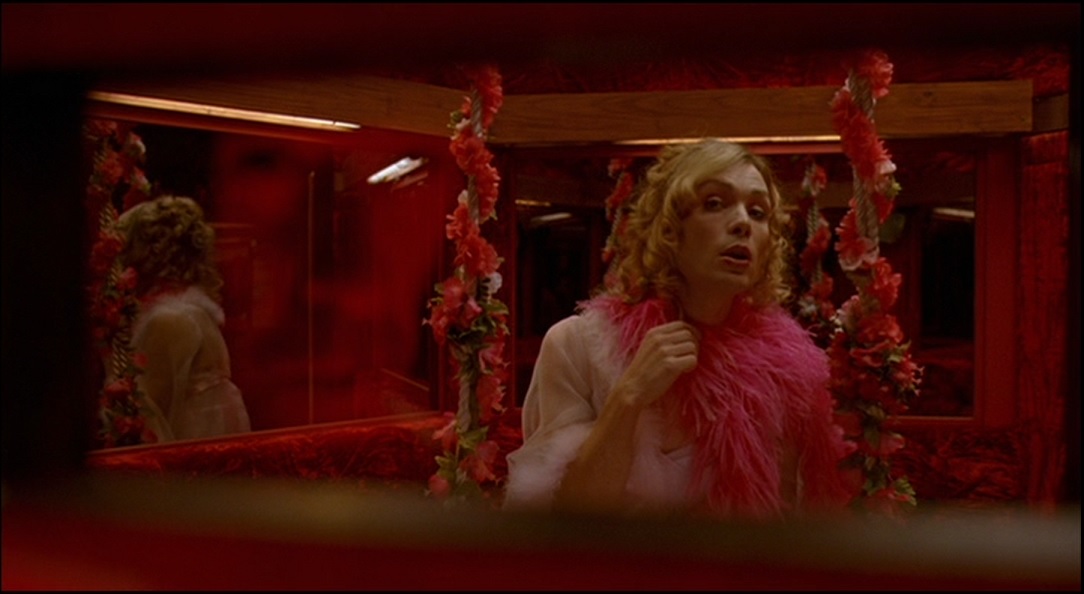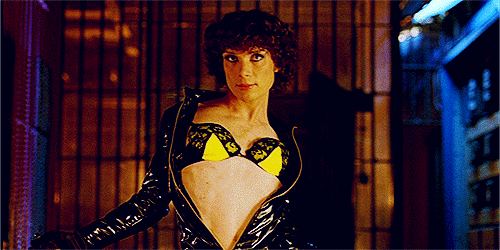Queer Portrayal In Contemporary Irish Cinema
Breakfast on Pluto: Border Traversal by an Irish Nancy Boy
Note: Because Kitten uses female pronouns when talking about herself, I will do the same in my analysis. However, though Kitten uses transvestite within the film, the term has generally fallen out of favor, so I will refer to Kitten as a transgender woman, due to the already mentioned pronouns, though her identity within the film does fluctuate.British occupation left Ireland violated and scarred. In trying oppose this post-colonial relationship,Ireland attempted to establish an identity distant from that of its former occupiers. Ironically, as Conrad points out, citing Ashis Nandy,"nationalist movements often respond to colonialism within the discursive limits set by the colonizer" (24). In order to reject the invading forces, Ireland established a hyper-masculinity, devoting men rulers of the household and Irish. Transgressing upon this masculinity was treason, both due in part to the rejection of the family unit and the case of Casement and the Black Diaries.
Neil Jordan's The Crying Game also explores this sexuality and politics, though it does so through the examination of the body Jordan's other film involvingBreakfast on Pluto, based on the book of the same name by Patrick McCabe, also author of The Butcher Boy, explores these dynamics as its main character Patrick/Patricia Kitten Braden traverses the borders between countries and genders. Through her adventures, though, Kitten assures her identity without being acquiesced into the politics that seek to control and punish her for her body. Though set during the troubles with frequent IRA activity, these national politics serve as a back drop as Kitten controls her narrative, evidenced the film being a retelling of her life to an infant. Her identity as both transgender and Irish disrupts norms, even leading her to be framed as a terrorist, but she does not conform . Rather, she controls her status as a subject as she travels from location to location , dragging others into her story while refusing to comply to gender and national politics.
The film begins with Kitten's childhood, establishing her as the illegitimate child of a parish priest and an absent mother who has been "swallowed up by London," already embroiled in complex arrangement of politics. Kitten thus resides with a foster mother and her daughter. The foster mother is established as being cruel to Kitten, with qualities similar to that of a Disney villain. When young Kitten is discovered wearing a dress, her foster mother threatens to parade Kitten through town to disgrace, to which he merely responds, "promise?"Her foster mother continues,punishes Kitten by having her say "I'm a boy, not a girl." The tone in which Kitten parrots the words is enthusiastic, prompting his sister to say "make him say it right." Conn Holohan describes Kittens mimicry of the phrase as protecting herself from "further punishment, yet here the words assume an entirely subversive meaning, filtered through his(her) camp subjectivity" ("Trauma", 145). Afterwards, her foster mother hands Kitten a football magazine (which features a large, nearly naked man displayed on the back cover) in order to better acquaint her with sports and masculinity, though the film cuts to Kitten imagining herself running down a football field in a sparkling dress and sash.
While Kitten establishes control in her life in Ireland through the subversion of threats from both her foster mother and the IRA, the way in which she travels between different areas also establishes her control of her narrative and identity. After her confrontation with the IRA The cutting between these two scenes highlights the ease in which travels, as she is shown merely crossing a bridge in Ireland with overlaying title card text reading "In which I leave that strife-torn Little Hamlet" to emerging from a London underground station with the title card text continuing with "...and Cross the Ocean Wild and Wide". In her quest to find her mother, Kitten encounters a bevy of people, from the Wombles to a magician, and though the spaces Kitten navigates do not represent significant landmarks or places, her ability to easily travel between areas despite her queer identity adds credence to her significance in her narrative.






Kitten actively maintains her subjectivity through the plot, but she also controls the exposure of her body to others. Films involving transgender individuals often explore the body these persons. The Crying Game's is a significant turning point for Fergus, as both he and the viewer are given an intimate view of Dil's body. But rarely does the film expose Kitten to the viewer's gaze; her body is clothed, and her physical sex is kept hidden from the audience's view. Though the audience understands that Kitten possesses male genitalia, her body is never made bare for the audience's curiosity. After the bombing of the dance club, Kitten is taken to the hospital. When a nurse attempts to cut Kitten's tights, her body is exposed for the press, but the audience is only given a large black X to censor the area. Late in the film, Kitten is caught turning tricks by the same officer who sensually beat her bloody. After already being absorbed into her narrative, the officer takes her to a peep show in order to get her off the streets where she knowingly digs her own grave. Kitten is accepted by the peep show entertainers, but her outfit consists of childish costumes rather than revealing garments. The film shows casts overhead shot of each girl undressing for a client's visual pleasure, but Kitten is merely resting on a swing decorated with pink fur. The film cuts to a client's view of Kitten, who asks her to take off her clothes, to which Kitten replies "I'm not that kind of show."
I argue, though, that the film suffers from the same problems as what McLoone discusses in his analysis of Reefer and the Model. Breakfast on Pluto is exploring the relationship between Britain and Ireland and questioning the rigidity of Ireland's identity. While Kitten's camp and outlandish nature establishes her as being in control of her narrative, the film does not explore her transgender identity so much as it uses her identity to explore its themes. The film is challenging normal gender roles, as Kitten crosses between the borders of both genders and nations, but this exploration becomes buried as the many layers of the film are explored.
